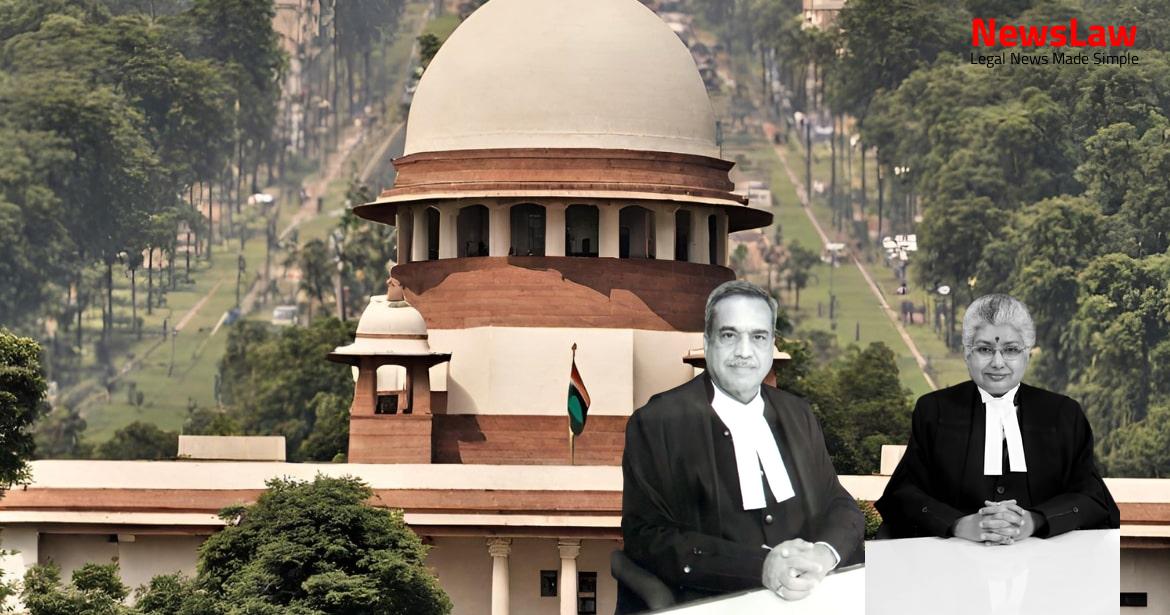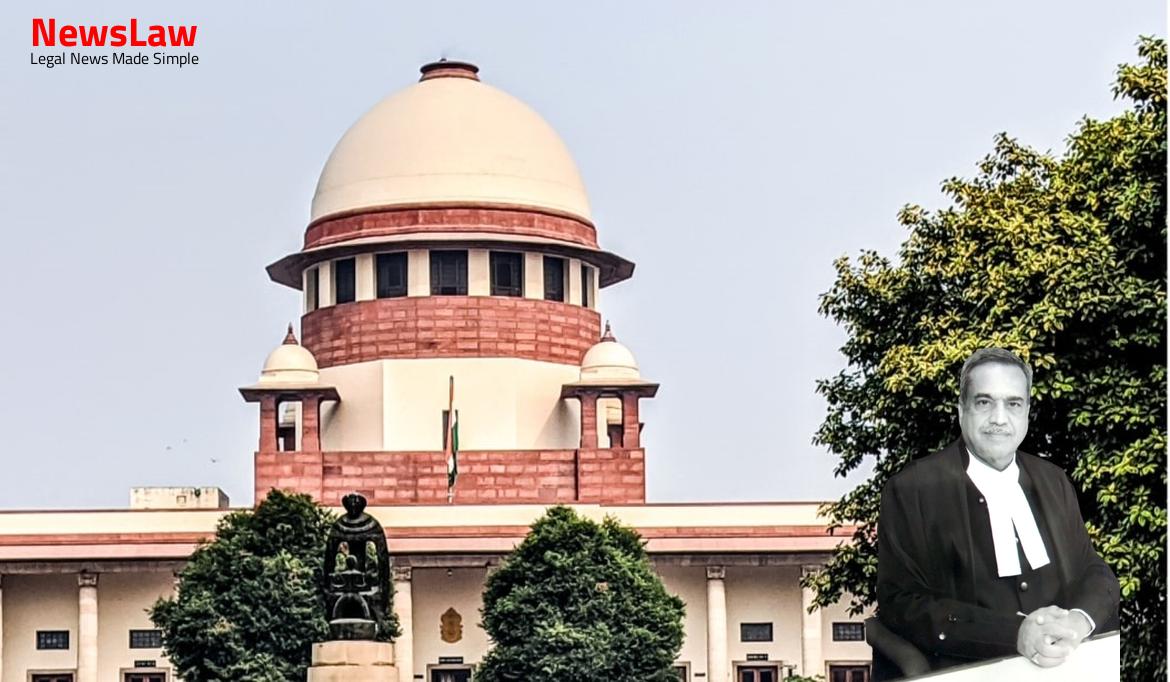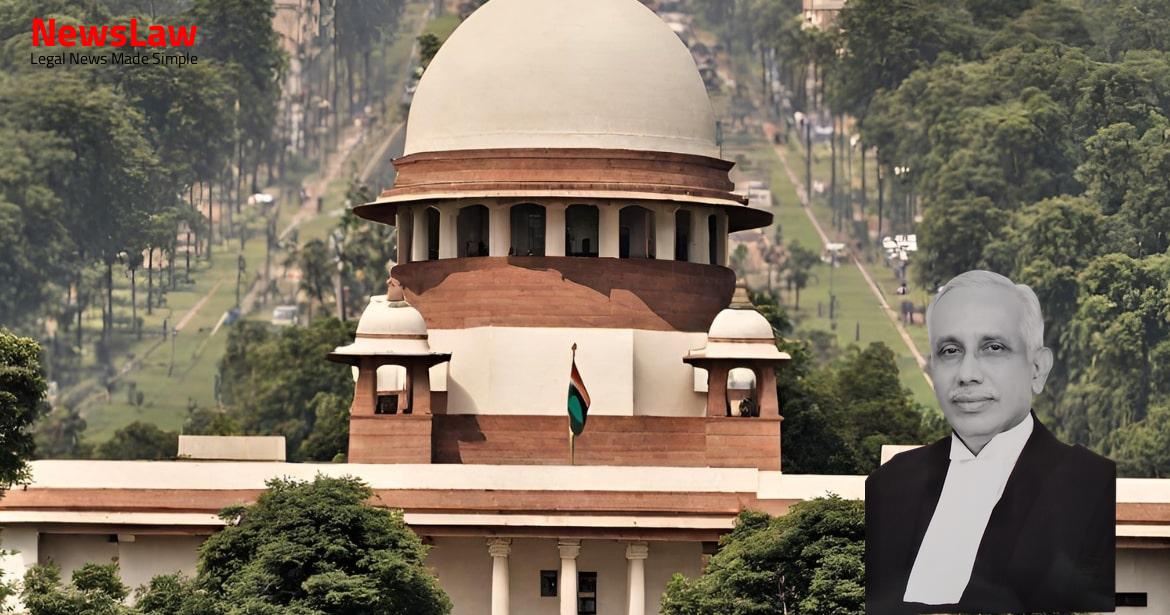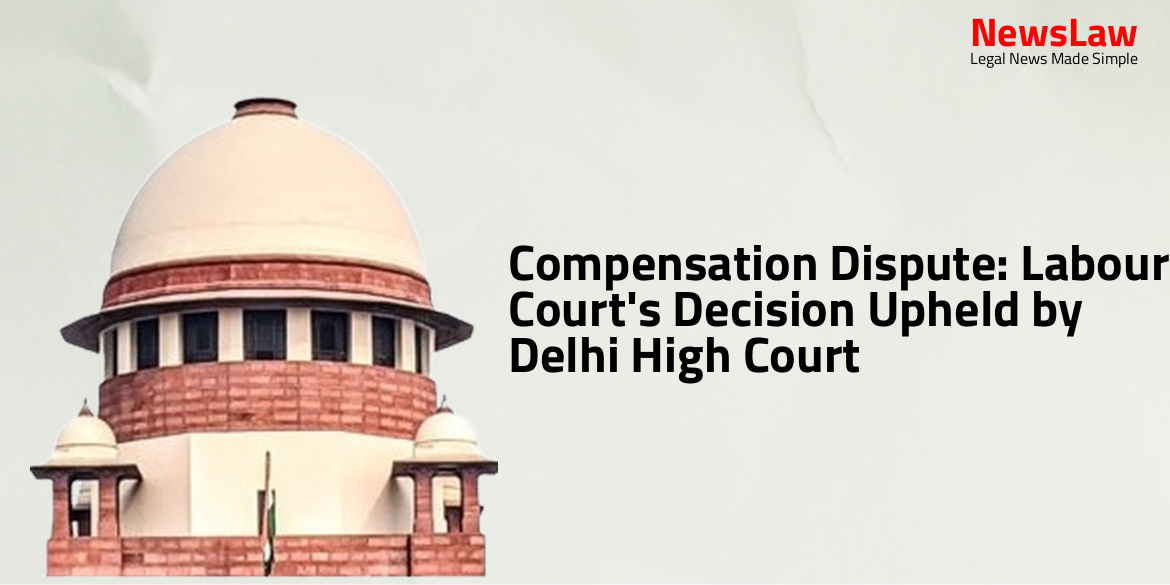In the legal realm, maintaining professional standards and ethical conduct is paramount, especially in disciplinary proceedings. This summary explores the court’s in-depth legal analysis of a case that emphasizes the significance of upholding integrity and ethical behavior in the legal profession. Join us to delve into the critical aspects of legal ethics and professionalism in the context of disciplinary proceedings.
Facts
- The appellant, original complainant No.1, filed an appeal under Section 35 of the Advocates Act, 1961 against the dismissal of his complaint by the Disciplinary Committee of the Bar Council of India.
- The complaint was initially filed by two complainants, but one of them, Shri S. Lakshmi Narayana, did not sign the complaint.
- The Disciplinary Committee of the Bar Council of India dismissed the complaint without delving into the allegations, citing the lack of signature by one of the complainants as the grounds for dismissal.
- The complaint was initially lodged with the State Bar Council of Andhra Pradesh, but due to delay in disposal, it was transferred to the Bar Council of India under Section 36B of the Advocates Act.
Also Read: Analysis of Benefits Denial to Daily Rated Employees
Arguments
- The duty of a lawyer is to the court, their own client, the opposite side, and to maintain respect for opposing party counsel.
- People have immense faith in the judiciary, and lawyers are the first point of contact in the legal system.
- The high values of the legal profession must be protected by all involved, especially young lawyers trying to navigate the competitive environment.
- Advocates must remember that they are not overly attached to any case, as the advocate does not win or lose a case; the true recipient of justice is the individual behind the scenes.
- In legal proceedings, litigants are given recognition of their rights, rather than winning or losing.
Also Read: Ruling on Circumstantial Evidence in Murder Case
Analysis
- The Bar Council of India has been transferring complaints received under Section 35 of the Advocates Act to the Bar Council of India as per Section 36B.
- The State Bar Councils are failing to dispose of complaints within one year, leading to an increasing number of transfers to the Bar Council of India.
- The Bar Council of India is directed to expedite the disposal of transferred complaints within one year.
- The Bar Council of India may consider appointing experienced advocates or retired judicial officers as Inquiry Officers for conducting necessary inquiries.
- State Bar Councils must meet regularly to dispose of complaints within the mandated one-year period as per Section 36B of the Advocates Act.
- The autonomy of the Bar Councils is emphasized, and the importance of upholding the dignity and nobility of the legal profession is stressed.
- The handling of complaints by the Bar Council of India and State Bar Councils is critiqued for delays and lack of expediency.
- The need for timely conclusion of disciplinary proceedings, even during the COVID-19 pandemic, is highlighted.
- Proper mechanisms and accountability measures are suggested to improve the functioning of Bar Councils in handling disciplinary matters.
- The transfer of complaints from State Bar Councils to the Bar Council of India is deemed an exception and should be carefully assessed.
- Efforts are made to urge State Bar Councils and the Bar Council of India to expedite the process and ensure prompt disposal of complaints within the stipulated timeframes.
- The necessity for ethical conduct and cooperative behavior from all parties involved in disciplinary proceedings, including complainants and advocates, is emphasized.
- The power of contempt and disciplinary actions to maintain the dignity and integrity of the legal profession and the judicial system are underscored.
- Disciplinary proceedings under section 36B of the Advocates Act must be concluded within one year of receiving the complaint.
- Failure to conclude proceedings within the specified time frame will result in the transfer of the case to the Bar Council of India.
- The Bar Council of India has the authority to make orders as the disciplinary committee of a State Bar Council could under section 35.
- The disciplinary committee of the Bar Council of India must follow the procedure laid down in section 35 when disposing of cases.
- The references to the Advocate General in section 35 should be understood as references to the Attorney General of India.
- Notice must be given to the Advocate General and an opportunity to be heard before making an order under section 35.
- The Bar Council of India can withdraw disciplinary proceedings from a State Bar Council for inquiry and make orders accordingly.
- The legal profession is different from other professions as it directly impacts the administration of justice and society.
- The functions of the Bar Council of India include setting standards of professional conduct, laying down procedures for disciplinary committees, and safeguarding the rights of advocates.
- The Disciplinary Committee is crucial in receiving complaints, forming beliefs of guilt, and making references for disciplinary action.
- Lawyers are expected to be responsible, uphold professional standards, and remind themselves that they serve the consumers of justice.
- The Bar Council of India and State Bar Councils play vital roles in ensuring the nobility of the legal system and upholding professional conduct.
- The Advocates Act emphasizes the duty of advocates towards clients, the court, and maintaining integrity.
- Efficient handling of complaints and disciplinary proceedings is essential to maintain trust in the legal profession and the administration of justice.
- No further order is required on the complaint made by the appellant.
Also Read: Challenging Legal Presumptions in Negotiable Instrument Cases
Decision
- The Council issued an order dated 11.03.2017
- A revision application has been filed before the Bar Council of India against this order
- The specific part of the judgement in question concerns the RPC (Rules of Professional Conduct) section
Case Title: K. ANJINAPPA Vs. K.C. KRISHNA REDDY (2021 INSC 921)
Case Number: C.A. No.-007478 / 2019



